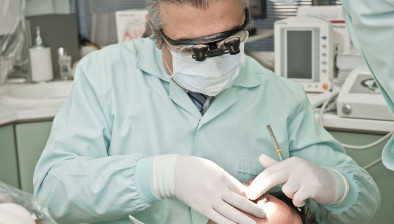Film provides wellbeing boost for care home residents

Dr Jenna Breckenridge
Film screenings can significantly enhance the wellbeing of elderly care home residents according to University of Dundee research that has informed a new resource for staff in Scottish homes.
‘Film in Care’ was developed as a collaboration between the University and the Care Inspectorate and published by the latter organisation. It builds on long-standing research by Dr Ana Salzberg and Dr Jenna Breckenridge into the impact of social film screenings in care homes.
They found that watching films can help residents to remember the past and reminisce while improving residents’ lives in the present. Films helped lift residents’ mood, encourage physical activity, spark conversations about modern day issues, and were particularly good at bringing different generations together. Regular film screenings also gave residents something to look forward to in future.
Dr Salzberg, who initiated the research at Dundee and is now senior lecturer in film studies at the University of Edinburgh, said: “It’s important that people living in care homes take part in activities that are meaningful to them to boost health and wellbeing. We found that film screenings, when used properly, can help them remember the past, enhance their present and share the future.
“Sometimes people think that watching a film is a passive activity, but our research showed that participants engaged with film in many ways. Film is an important form of escapism for many and helps generate memories that they can share with fellow residents, staff, and visitors. We witnessed people who usually engaged in very little physical activity dancing, singing, and swaying through musical numbers.
“Some talked through the films and became more animated and we saw some people with dementia become calmer. Others who struggle to sleep were helped to do so by film. The important thing was that the screening enabled individuals to derive their own individual benefits. Having regular screenings helped build a sense of anticipation among a group who are maybe not attuned to thinking about the future anymore.”
Dr Breckenridge, a lecturer in health sciences at Dundee, said: “Discussing the options with people living in the care home and letting them decide which films to watch gave them a sense of agency, which is very important. We also identified the importance of letting them watch in their own way, whether that means talking throughout, dipping in and out or even having a little snooze during the film.
“When we first started this project we found that some care homes put on movies for half an hour then turned off when people started chatting or fell asleep, but people don’t have to pay attention throughout a film to enjoy the experience and the company. Some people may fall asleep, talk among themselves, or come in and out of the room, but the important thing is that they can watch films the way they want to.”
As well as observing how residents engaged with the films, the researchers ran discussion groups with residents and interviewed care home staff before developing a set of core principles for using film in care most effectively. They then worked with the Care Inspectorate to run a series of improvement projects to test these in a real-world setting.
These projects informed the final Film in Care resource, which also recommends that staff and residents sit down to watch together. Residents feel more comfortable when staff members are present, while screenings can also be incorporated in a resident’s visitor schedule to enable inter-generational experiences.
Craig Morris, head of the quality improvement support team at the Care Inspectorate, said: “I am delighted that the Care Inspectorate is a key part of the Film in Care project, which has real potential to make a positive difference in the lives of so many people experiencing care in Scotland.
“Whatever we do, it must be about improving people’s experiences of social care. Film in Care is a great way to significantly enhance wellbeing, and help people remember the past while improving their lives in the present.
“Film in Care is an excellent resource for services to help lift people’s mood, encourage physical activity, spark conversations, and bring different generations together, all of which can have an incredible impact.”







